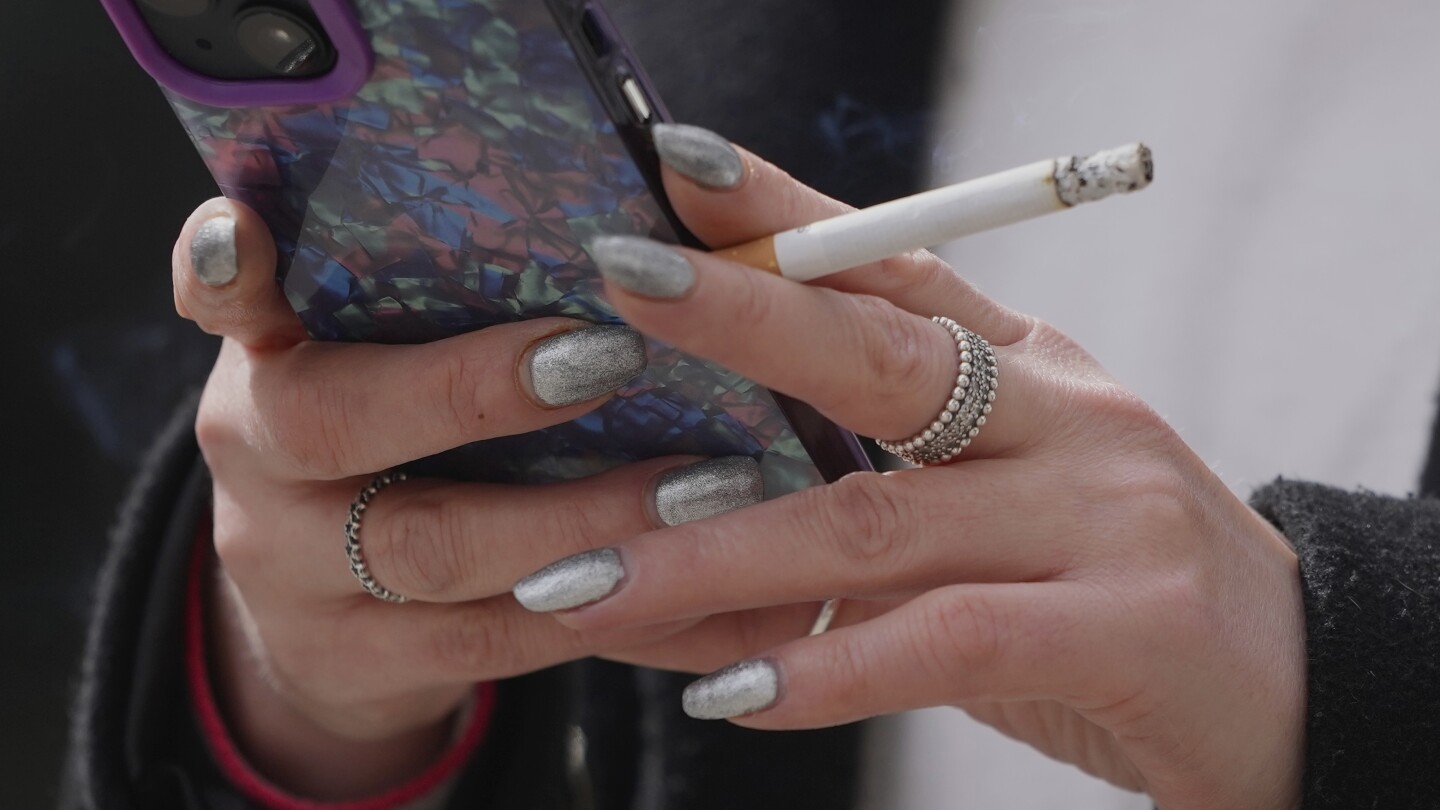LONDON (AP) — British Prime Minister Keir Starmer confirmed Thursday that his government is looking at introducing tougher anti-smoking measures, which could potentially see a ban on smoking in outdoor spaces, including at pubs and restaurants.
His confirmation came after a report in the Sun newspaper that the government was mulling a ban in pub gardens and outdoor restaurants, as well as outside facilities such as hospitals, universities and sports grounds.
Smoking in the U.K. has been banned inside pubs, restaurants and most workplaces since 2007. Still, smoking-related illnesses remain a drain on the National Health Service, costing it over 2.5 billion pounds a year in England alone, according to figures from the NHS.
“My starting point on this is to remind everybody that over 80,000 people lose their lives every year because of smoking,” Starmer said in Paris while visiting French President Emmanuel Macron. “So, yes, we are going to take decisions in this space, more details will be revealed, but this is a preventable series of deaths and we’ve got to take action to reduce the burden on the NHS and the taxpayer.”
Starmer’s Labour government, which was elected in July, has already said it will reintroduce the former Conservative administration’s legislation to outlaw the sale of tobacco to anyone born on or after January 2009. Under that plan, which didn’t become law because the election was called early, the legal age that people in England can buy cigarettes will be raised by one year, every year until it is eventually illegal for the whole population.
The number of people who smoke in the U.K. has declined by two-thirds since the 1970s, but some 6.4 million people in the country — or about 13% of the population — still smoke, according to official figures. In 2007, the legal age of sale for tobacco was raised from 16 to 18 alongside the smoking ban indoors.
While health professionals broadly welcomed the prospect of a smoking ban outdoors, others argued that it is a further unnecessary intrusion by the state on people’s lifestyle choices and another potential burden on businesses still struggling to recoup the losses during the coronavirus pandemic and the subsequent surge in energy costs following Russia’s invasion of Ukraine.
“As we consider the implications of these potential restrictions, we must question whether such an approach is truly in the public interest, or whether it risks over-regulation at the cost of personal freedom and business viability,” said Michael Kill, chief executive of the Night Time Industries Association.
Clive Watson, pub entrepreneur and chairman of Inda pub group, said it’s a “bonkers” idea that “will encourage customers to stay at home, meaning there is no health upside.”

